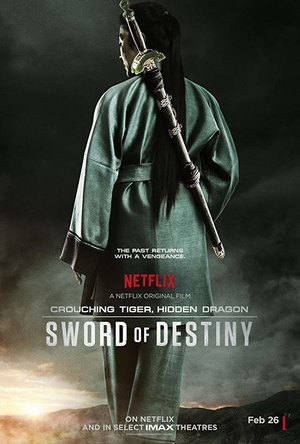Night Reader Reviews (683 KP) rated Ten Minutes On Mars in Books
Jan 10, 2020
Keeping with more of a horror theme this book starts off with a ghost in a graveyard although the ghost doesn't make another appearance until the end of the book. Readers are then taken on a hunting trip through the eyes of the prey. A truly scary experience. During the course of this book, the people who live in the cracks in the pavement or as it seemed to be the down and out or homeless are brought to light as well. Basically these are the people that the majority of society pretends don’t exist.
This journey takes readers to the far reaches of space abroad The Ascension. It is on The Ascension where tattoos can be used to control people and others are able to shapeshift. In our technologically advanced society, many wonder about what will happen when AI becomes so advanced that it sees itself as human or tries to take over. That is what happens in another one of the stories to a worker on another planet. Finally, readers see the lengths that a mother will go to in order to avenge a close friend and protect her own child. So sit back and relax as you are taken on a creepy trip deep into the monstrous world that we call humanity, in a town where monsters are normal.
What I liked best was that many of the stories overlapped with one another in some way. While they all take place in the same town the connections go deeper than just that. This book could almost read as each story being just a chapter instead of a stand-alone story. What I did not like was how often this book was confusing to me. I had to reread areas to clear up and be sure what I just read was correct. Some of the confusing points were just because of me misunderstanding the wording. On the other hand, some areas such as when it talks about a decapitated dolphin head being sentient and a vampire still confuse me.
The target readers for this book are adults and young adults. Specifically, those who like fantasy and horror should enjoy this book the most. There is cussing, murder, and the overall tone was not for children to read, even if it wasn’t that long. A high school student should be able to handle this book if they wanted to read it. I rate this book 2 out of 4. After reading this book a second time I might increase my score but for now, this is the best I can offer it. I found this book to be enjoyable yet at the same time, I did not really like it. On the surface I found some of the stories to be confusing or even pointless. When I looked deeper I found it had more depth about the nature of humans than I previously thought, although I do not know if this was the author’s intention.
https://www.facebook.com/nightreaderreviews
Darren (1599 KP) rated Crouching Tiger, Hidden Dragon: Sword of Destiny (2016) in Movies
Aug 6, 2019
Needing to protect the sword, Yu puts out a call for warriors to come and help defend it, which sees Silent Wolf (Yen) put together a five-person army, while Yu takes on a new student Snow Vase (Bordizzo) with skills advanced of her age.
Thoughts on Crouching Tiger, Hidden Dragon: Sword of Destiny
Characters – Yu has returned from her isolation and mourning after 18-years away only to stumble into the next attempt to steal the Sword of Destiny, here she must learn who to trust, reunite with an old ally and put herself in the teaching position. Silent Wolf has lived a life in isolation, where his loved ones believed him to be dead, he returns to help defend the sword for the greatest honour in his life. Wei Fang is a young warrior that is being forced into stealing the sword to protect his master, he learns about his past and along with Snow Vase who also has a decision of her own to make, provide the unsure future for Yu on who to trust. Snow Vase is the talented young fighter knowing skills beyond her age, she askes to be taught even if she isn’t as disciplined as she should be.
Performances – Michelle Yeoh returns to this role, she brings the fight skills that made the first one fantastic and must play the role with an emotionless feeling of being broken, which she does with ease. Donnie Yen takes up the mysterious fighter role which is a role that he could take any day and never look out of place. it is the new comers that impress in the fighting side of things, where they struggle in places with the emotional factors at play in their characters.
Story – The story here returns Yu back to the land she once fought for, where she must defend it from a new warlord that wants the sword which could bring power to control the land. This is a sequel that does well to return one of the favourites which also dives into her past to bring a new character, while also offer people that could become the new leads if the series was going to continue. When we break down the story it does play into tradition of being loyal and honour. It would have been nice to see more from the villain which only has a few moments which are just generic villain style, without seeing him do anything truly villainous.
Action/Fantasy – The action in the film is the martial arts material we have enjoyed for years, we have the weightless effects which were famous from the first which add the style required to be unique. This does play into the fantasy of the action which goes against the physics of fighting.
Settings – The film brings back the settings we knew and still look fantastic, with the final showdown being in a new location which is used to add to the fight.
Special Effects – The effects are used to make the fights feel like they could be real, the weightless style is the best part of the fights.
Scene of the Movie – Final fight.
That Moment That Annoyed Me – Certain moments of the Wei Fang and Snow Vase does drag at times.
Final Thoughts – This is a fun sequel to a much more superior original, it will entertain without being anywhere near the level original.
Overall: Entertaining for the fans.

Bitsboard - Education, Games, and Flash Cards App
Education and Games
App
- Top 5 Education Game in the US App Store - Study almost anything for free across 25 addictive...

Got It Study - Homework Help
Education and Productivity
App
Stuck on a homework problem, test question, or assignment and need to solve the problem right away? ...

EASA ATPL Theory Exam Prep
Education and Lifestyle
App
Our GroundSchool EASA ATPL (Airline Transport Pilot License) Airplane theory exam preparation app is...
1st Grade Math Learning Games
Education and Games
App
We make math fun & engaging. Over 20 Million kids use the Splash Math program to Boost Confidence,...

The Holy Bible - King James Version
Book and Reference
App
The Holy Bible - King James Version is a beautiful, easy to use, full featured Tecarta Bible app...

La Biblia NVI
Book and Reference
App
La Nueva Version Internacional de la Biblia es una aplicación de Tecarta. La aplicación tambien...

Tecarta Bible
Book and Reference
App
The Tecarta Bible is a beautiful, easy to use, full featured Bible app designed for quick...

WeDo: Your second brain.
Productivity, Education and Stickers
App
See why WeDo has been praised by Forbes, Huffington Post, The Verge, Tech Crunch, and more! BEST...


